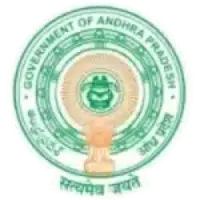Latest Applications Open 2024:
AP PGECET 2024 Food-Technology Syllabus has been Available now. The AP PGECET Food Technology syllabus is a vital resource for candidates aspiring to pursue postgraduate studies in this field. This syllabus comprehensively covers the essential topics and subjects for success in the AP PGECET examination.
Candidates can expect to delve into various aspects of food technology, including food chemistry, microbiology, food engineering, and food preservation. They will explore the principles and techniques used in food processing, quality control, and safety measures in the food industry.
Additionally, the syllabus may encompass advanced topics such as food product development, sensory evaluation, and food packaging technology. Candidates will gain insights into food technology’s latest advancements and research areas.
AP PGECET 2024 Food -Technology Syllabus – Available
AP PGECET 2024 Food-Technology Syllabus has been Available now. Click to Download Syllabus PDF.
AP PGECET 2024 Food Technology Syllabus
A solid understanding of this syllabus is crucial for candidates seeking admission to prestigious postgraduate programs in food technology in Andhra Pradesh. It serves as a roadmap for their preparation, ensuring they are well-equipped to excel in the AP PGECET Food Technology examination and subsequently thrive in their academic and professional pursuits in the food industry.
Food Chemistry
Carbohydrates – Structure and functional properties of mono, di & oligo- polysaccharides including starch, cellulose, pectic substances, and dietary fiber; Proteins – Classification And structure of proteins in food. Lipids-Classification and structure of lipids, rancidity of fats, polymerization and polymorphism; Pigments – carotenoids, chlorophylls, anthocyanins, tannins, and myoglobin; Food flavours-Terpenes, esters, ketones and quinones; Enzymes-Enzymatic and non-enzymatic browning in different foods.
Nutrition:
A balanced diet, Essential amino acids, fatty acids, PER, Water soluble and fat-soluble vitamins, Role of minerals in nutrition, Antinutrients, and Nutrition deficiency diseases.
Latest Applications For Various UG & PG Courses Open 2024
-
- Parul University | Admissions Open for All Courses 2024. Apply Now
- Chandigarh University | Admissions Open for All Courses 2024. Apply Now
- IIAD, Delhi | Admissions Open for All Courses 2024. Apply Now
- GIBS, Bangalore | PGDM Applications Open. Package upto 15.5 LPA. Apply Now
- GNIOT, Greater Noida | Admissions Open for All Courses 2023. Apply Now
- The Design Village | Admissions Open for All Courses 2024. Apply Now
- IMS Ghaziabad UC Campus | Admissions Open for All Courses 2024. Apply Now
- KIIT School of Management | Admissions Open for All Courses 2024. Apply Now
- KSRM | Admissions Open for All Courses 2024. Apply Now
- Jaipuria Institute of Management | Admissions Open for All Courses 2024. Apply Now
- NIIT | Admissions Open for All Courses 2024. Apply Now
- MITWPU | Admissions Open for All Courses 2024. Apply Now
- KL University | Admissions Open for All Courses 2024. Apply Now
- Alliance MBA | Admissions Open for All Courses 2024. Apply Now
- Alliance UG | Admissions Open for All Courses 2024. Apply Now
- GD Goenka | Admissions Open for All Courses 2024. Apply Now
Food Microbiology & Biotechnology
Food Microbiology and biotechnology is a dynamic field at the intersection of food science, microbiology, and biotechnology. It focuses on studying microorganisms in food and their application in various food-related processes. This discipline ensures food products’ safety, quality, and innovation. Harnessing the power of microorganisms leads to advancements such as probiotics, fermentation, and biopreservation techniques, which profoundly impact the food industry. Food Microbiology and biotechnology are integral to meeting the evolving demands of a growing global population for sustainable, nutritious, and safe food products.
Food Microbiology:
Characteristics of microorganisms-Morphology, structure, and detection of
Bacteria, yeast, and mold in food, Spores, and vegetative cells; Microbial growth in food-Intrinsic and extrinsic factors, Growth and death kinetics, serial dilution method for quantification; Food spoilage- Contributing factors, Spoilage bacteria, Microbial spoilage of milk and milk products, meat and meat products; Food bone disease-Toxins produced by Staphylococcus, Clostridium and Aspergillus; Bacterial pathogens – Salmonella, Bacillus, Listeria, Escherichia coli, Shigella, Campylobacter.
Biotechnology:
Fermented food – Buttermilk, yogurt, cheese, sausage, alcoholic beverage, vinegar, wine, beer, whisky, sauerkraut and soya sauce.
Food Technology
Food Technology is a dynamic and interdisciplinary field focused on the science, production, and processing of food. It plays a crucial role in ensuring food safety, quality, and innovation. In this rapidly evolving field, professionals work to develop new food products, improve preservation methods, and enhance nutritional value. Food Technologists collaborate with various industries, including agriculture, manufacturing, and healthcare, to create safe, nutritious, and appealing food products. As global food demands continue to rise, Food Technology remains at the forefront of addressing challenges and shaping the future of food production and consumption.
Cereals, pulses, and oil seeds:
Composition, nutritional value, processing methods, and products of i) rice, wheat, and maize, barley, oats & minor millets; ii) Bengal gram, red gram, green gram, black gram, and chickpeas; iii) Ground nut, soya bean, sunflower & other oil seeds. Fruits, Vegetables and Plantation Crops: Extraction, clarification, concentration and packaging of
fruit juice, production of jam, jelly, marmalade, squash, candies, pickles, pectin from fruit waste, tea, coffee, chocolate, and essential oils from spices.
Meat, Fish, Poultry & Milk:
Post-mortem changes of meat, freezing, aging, pickling, smoking and tenderization of meat, drying, and canning fish. Structure, Composition, nutritional value, and functional properties of eggs and their preservation by different methods.
Milk and milk products processing:
Milk Processing flow sheet, filtration/clarification, milk storage, standardization – simple problems in standardization, Homogenization, pasteurization – types of pasteurization process. Manufacture of cream,
butter, ghee, milk powder, cheese.
Food Engineering
Food Engineering is a multidisciplinary field at the intersection of food science, engineering, and technology. It focuses on applying engineering principles to the production, processing, preservation, and distribution of food products. Food engineers work to optimize processes, improve food quality and safety, and develop innovative food products. This dynamic field plays a crucial role in meeting the growing global demand for safe and sustainable food production. Food Engineering is vital for enhancing food processing efficiency, reducing waste, and ensuring that consumers have access to nutritious and delicious food options.
Fluid Mechanics:
Nature of fluids, flow properties of fluids, flow through pipes & fittings, flow measurement, transportation of fluids – pumps, compressors, and blowers; Heat transfer: Heat transfer by conduction, convection, radiation, boiling and condensation, steady & unsteady state heat transfer; other unit operations: size reduction, homogenization, filtration, sedimentation, centrifugation, sieving, mixing, extraction, crystallizations, evaporation, drying, and extrusion. Types of equipment used in each unit
of the operation, their selection, and applications in the food industry.
Food Quality & Standards
Food quality and standards refer to the set of guidelines and criteria that define the safety, nutritional value, and overall quality of food products. These standards are crucial for ensuring that food items meet specific consumer health and satisfaction benchmarks. They encompass factors such as ingredient composition, labeling, hygiene, and safety regulations. Food quality and standards are vital in safeguarding public health, promoting fair trade, and supporting transparency in the food industry. Compliance with these standards is essential for producers and consumers to maintain the integrity and safety of the food supply chain.
Latest Applications For Various UG & PG Courses Open 2024
-
- Parul University | Admissions Open for All Courses 2024. Apply Now
- Chandigarh University | Admissions Open for All Courses 2024. Apply Now
- IIAD, Delhi | Admissions Open for All Courses 2024. Apply Now
- GIBS, Bangalore | PGDM Applications Open. Package upto 15.5 LPA. Apply Now
- GNIOT, Greater Noida | Admissions Open for All Courses 2023. Apply Now
- The Design Village | Admissions Open for All Courses 2024. Apply Now
- IMS Ghaziabad UC Campus | Admissions Open for All Courses 2024. Apply Now
- KIIT School of Management | Admissions Open for All Courses 2024. Apply Now
- KSRM | Admissions Open for All Courses 2024. Apply Now
- Jaipuria Institute of Management | Admissions Open for All Courses 2024. Apply Now
- NIIT | Admissions Open for All Courses 2024. Apply Now
- MITWPU | Admissions Open for All Courses 2024. Apply Now
- KL University | Admissions Open for All Courses 2024. Apply Now
- Alliance MBA | Admissions Open for All Courses 2024. Apply Now
- Alliance UG | Admissions Open for All Courses 2024. Apply Now
- GD Goenka | Admissions Open for All Courses 2024. Apply Now
Food Quality:
Food Quality Attributes – Classification of quality attributes and their role in food quality. Quality assessment of food materials – fruits and vegetables, cereals and pulses, dairy products, meat, poultry, egg, and processed food products sensory evaluation of food quality and its methods of food adulteration and food safety.
Standards:
FSSAI/PFA Act 1954 and Rules 1955-Scope; definitions & standards of quality, FPO, and MPO – Rules, FSMS – 22000: 2005 – Various elements included in the standard, Introduction to the family of ISO 22000 standards, comparison of ISO 9001:2008 vs. ISO 22000:2005, FSSAI, HACCP – Terminology, Principles, Identification of CCPs, Application of the HACCP System, and the logic sequence involved.

As a dedicated Biology Science graduate, I’m passionate about sharing the latest updates in national and state entrance exams through my blog. I aim to keep aspiring students informed about exam trends, important dates, and changes in syllabi. With a keen interest in education, I strive to offer valuable insights for students navigating the competitive landscape of entrance examinations and admission tests. Stay updated with me.

